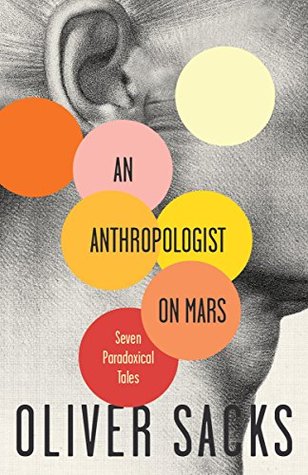More on this book
Community
Kindle Notes & Highlights
by
Oliver Sacks
Read between
July 2 - July 24, 2023
This, too, was Dostoevsky’s attitude. “What if it is disease,” he asks, through Prince Mishkin. “What does it matter that it is an abnormal intensity, if the result, if the minute of sensation, remembered and analysed afterwards in health, turns out to be the acme of harmony and beauty … of completeness, of proportion?”
The danger is that we may go overboard in medicalizing our predecessors (and contemporaries), reducing their complexity to expressions of neurological or psychiatric disorder, while neglecting all the other factors that determine a life, not least the irreducible uniqueness of the individual.
It was medically described, almost simultaneously, in the 1940s, by Leo Kanner in Baltimore and Hans Asperger in Vienna. Both of them, independently, named it “autism.” Kanner’s and Asperger’s accounts were in many ways strikingly (at times uncannily) similar—a nice example of historical synchronicity.
Asked how he was doing, the boy replied, “Oh, I am all right. You see I have Asperger syndrome which makes me less vulnerable to the loss of loved ones than are most people.”
Savant talents, further, have a more autonomous, even automatic quality than normal ones. They do not seem to occupy the mind or attention fully—Stephen will look around, listen to his Walkman, sing, or even talk while he is drawing; Jedediah Buxton’s huge calculations moved ahead at their own fixed, imperturbable rate while he went on with his daily life. Savant talents do not seem to connect, as normal talents do, to the rest of the person. All this is strongly suggestive of a neural mechanism different from that which underlies normal talents.
He seemed hungry for more. “Let’s do sevenths now,” Evie said, and Stephen nodded and chortled as if he had been promised a chocolate.
This was first realized in the 1960s with the epidemic of rubella, when a large number of babies exposed to this prenatally went on to develop autism.
No two people with autism are the same; its precise form or expression is different in every case.
When I first read the book, I could not help being suspicious of it: the autistic mind, it was supposed at that time, was incapable of self-understanding and understanding others and therefore of authentic introspection and retrospection.
(It is not clear whether this hyperfocus of attention—an attention as narrow as it is intense—is a primary phenomenon in autism or a reaction or adaptation to an overwhelming, uninhibited barrage of sensation. A similar hyperfocus is sometimes seen in Tourette’s syndrome.)
on
the personal and the professional, the inward and the outward, were completely fused.
“Cattle are disturbed by the same sorts of sounds as autistic people—high-pitched sounds, air hissing, or sudden loud noises; they cannot adapt to these,” Temple told me. “But they are not bothered by low-pitched, rumbling noises. They are disturbed by high visual contrasts, shadows or sudden movements. A light touch will make them pull away, a firm touch calms them.
A cattle farm, even a large one, is often a quiet place, but when we arrived we could hear a great tumult of bellowing. “They must have separated the calves from the cows this morning,” Temple said, and, indeed, this was what had happened. We saw one cow outside the stockade, roaming, looking for her calf, and bellowing. “That’s not a happy cow,” Temple said. “That’s one sad, unhappy, upset cow. She wants her baby. Bellowing for it, hunting for it. She’ll forget for a while, then start again. It’s like grieving, mourning—not much written about it. People don’t like to allow them thoughts or
...more
What is terrible, the more so because it is avoidable, she feels, is pain and cruelty, the introduction of fear and stress before the lethal cutting; and it is this that she is most concerned to prevent.
“I want to reform the meat industry. The activists want to shut it down,” she said, and added, “I don’t like radical anything, left or right. I have a radical dislike of radicals.”
Children, she feels, are already far advanced, by the age of three or four, along a path that she, as an autistic person, has never advanced far on. Little children, she feels, already “understand” other human beings in a way she can never hope to.
I was reminded, reading this, of what Robert Lowell once told me about being on lithium for his manic-depressive disorder: “I feel much ‘better,’ in a way, calmer, stabler—but my poetry has lost much of its force.”


